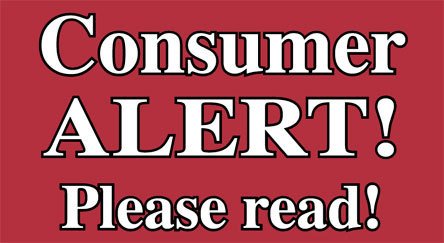Law Enforcement advises the usual precaution: Use caution when speaking to anyone about sensitive financial information over the phone.
The scammers pose as advertising representatives from the newspaper, and call customers who have placed ads or classified notices, to report a problem with the customer’s credit card.
The callers say they need to confirm the card number and security code on the back of the card. These callers are not from this newspaper.
This newspaper will attempt to collect payment on returned checks and invalid credit card payments; but advertisers would receive calls from our accounting department seeking an alternate payment method.
To be sure you are speaking with an authorized representative of our newspaper, use these following tips:
• Ask the caller to identify himself/herself and the office he/she is calling from, including the address. If you do not recognize the caller, hang up and call your local newspaper office directly.
• Before providing payment information to a caller, ask for information that would be unknown to scammers. This could include your billing address or previous payment information. A newspaper representative can verify your original payment method, check numbers, banking institution and/or the last four digits and expiration of your credit card.
• If the caller claims your check was returned or credit card was declined, verify this information by calling your bank or credit card company or by checking your bank statement.
If you receive a scam call like this, write down all information you can about the call, such as: the caller’s name, phone number, time of day and duration of call.
If you feel you have given your information to one of these scammers – Immediately contact your bank and/or credit card company to place a hold on the transaction in question or on your account and begin a fraud investigation. Callers who may have already given financial information to callers should also call their bank or credit card company to place an immediate hold on their accounts and begin a fraud investigation.
If you are a victim of this scam please contact this office (360-394-8702), your local police department, or the consumer fraud division of the Washington Attorney General’s office.



